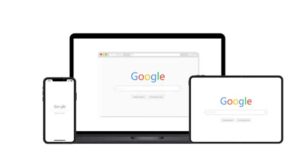Google Search SHOCK! 1 Ranking Hack Revealed (Page 2 is DEAD!)
Google is reverting to paginated search results, discontinuing continuous scrolling on mobile and desktop SERPs. This change aligns with its AI-powered Search Generative Experience (SGE), ensuring AI summaries remain prominent. Advertisers may face increased competition for top positions, potentially raising CPCs while improving CTRs. Experts believe Google must refine search relevance and reduce clutter to maintain user trust. The shift reflects a move toward structured search experiences, balancing AI integration with traditional ranking strategies.

Google Search SHOCK! 1 Ranking Hack Revealed (Page 2 is DEAD!)
Google has officially phased out continuous scrolling, bringing back traditional paginated search results. This shift means appearing on the first page is more critical than ever for both organic and paid search rankings. With AI-powered summaries like Search Generative Experience (SGE) taking center stage, search strategies must evolve to stay competitive.
Google Reverts to Paginated Search Results: What It Means for Users and Advertisers
Google has decided to discontinue continuous scrolling on mobile and desktop Search Engine Results Pages (SERPs), a feature first introduced in October 2021 for mobile users and extended to desktops by December 2022. This change marks a return to traditional paginated search results, where the much-overlooked “page 2” of Google SERP makes a comeback.
For advertisers and marketers, this shift could impact strategies that relied on increased visibility from continuous scrolling. With over 8.55 billion searches conducted daily, the change raises questions about ad placement and visibility on search pages.
Why Google Is Reversing Continuous Scrolling
According to Preetham Venkky, Chief Digital Officer at DDB Mudra Group, Google’s decision is influenced by growing criticism over declining search relevance and the dominance of sponsored ads. The continuous scrolling format, inspired by social media feeds on TikTok and Instagram, aimed to enhance user experience but didn’t significantly improve search engagement or SEO performance. Instead, first-page rankings remained the most valuable for organic traffic.
AI Summaries Take Center Stage
Google’s move aligns with the rollout of AI-driven features like the Search Generative Experience (SGE). Venkky points out that continuous scrolling often led users to bypass AI-generated summaries at the top of search results. By reinstating paginated search, Google ensures that AI summaries remain visible and encourage user interaction.
As AI-powered search elements become more integrated, the classic “10 blue links” may lose prominence. Abhishek Upadhya, VP Strategy & Media at HiveMinds, predicts that this shift could lead to the introduction of new ad formats, such as sponsored AI-generated overviews, altering how advertisers approach search rankings.
Increased Competition for Ad Space
The return to paginated search results means advertisers must focus on securing top positions for their ads to maintain visibility. Ashutosh Nagare, VP – Head of Performance Marketing at Interactive Avenues, suggests that this change may increase competition and drive up Cost-Per-Click (CPC) rates. However, it could also enhance Click-Through Rates (CTR) by reducing ad clutter.
Before continuous scrolling, there was speculation that organic search results might benefit more than paid ads. Ishan Chaki, Google Media Buying Manager at Adbuffs, notes that with paginated search returning, appearing on the first page remains crucial for both paid and organic rankings.
Upadhya adds that the removal of continuous scrolling could reduce ad impressions for lower-ranked pages, leading to a potential rise in CPCs for premium placements. Meanwhile, Google may adjust its ad formats as AI-generated content reshapes search experiences.
The Future of Google Search
Tech experts believe Google must refine its search algorithm to address concerns about relevance and content quality. Venkky suggests that AI could help Google prioritize insightful results over merely popular ones, improving search effectiveness. He also points out that infinite scrolling often led to “selection paralysis,” where users became overwhelmed by too many options, reducing meaningful engagement.
By shifting away from endless scrolling, Google aims to balance user experience, ad performance, and AI-driven search innovations. As AI-powered search continues to evolve, advertisers and users alike must adapt to a more structured, but potentially more effective, search environment.
Check out TimesWordle.com for all the latest news
You must be logged in to post a comment.